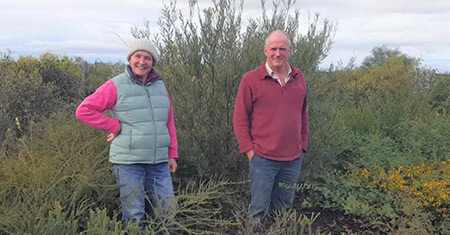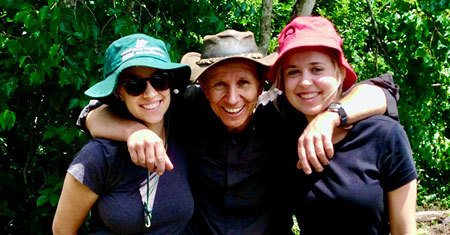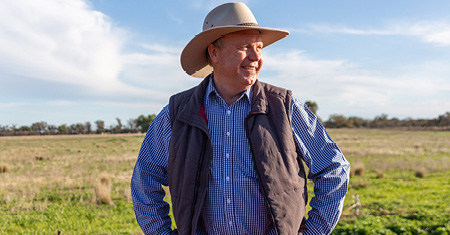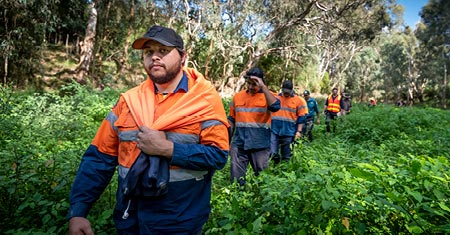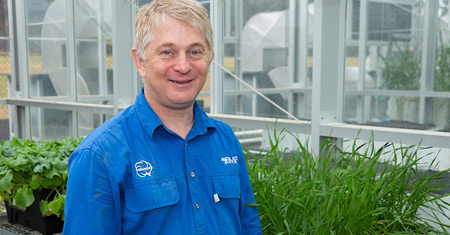
25 August 2022 | Leading soil health champion, educator and researcher, Dr Oliver Knox, has been announced as the recipient of the 2022 General Jeffery Soil Health Award for his outstanding efforts to embed learning and understanding of soil health – from the field to the classroom.
Named in honour of Australia’s first National Soils Advocate, the late Major General the Honourable Michael Jeffery, AC, AO (Mil), CVO, MC (Retd), the Award recognises an individual’s work to champion, improve and/or educate others in soil health.
Dr Knox is an Associate Professor in Soil Systems Biology in the School of Rural and Environmental Sciences at the University of New England (UNE), where he reintroduced soil biology into the undergraduate syllabus in 2014.
As the CottonInfo technical lead in soil health since 2016, he has developed and delivered field workshops to land managers in the cotton production areas of Australia. He has also written numerous industry articles on soil health and land management, which have included how to access soil resources in NSW and Queensland.
Dr Knox has been instrumental in driving the Soil Your Undies soil health program in Australia. Adapting the idea from an educational campaign for farmers in Canada, Dr Knox brought the program to Australia and modified it to a postal and online citizen science challenge.
In the past two years, it has been undertaken in around 500 classrooms, educating an estimated 12,000 school children in soil health. Dr Knox intends to use the General Jeffery Soil Health Award to build on the success of the Soil Your Undies campaign.
Australia’s National Soils Advocate, the Honourable Penny Wensley AC, announced the recipient of the 2022 Award at the National Landcare Awards held at the International Convention Centre in Sydney last night (24 August).
“As Australia’s National Soils Advocate, I am very pleased to acknowledge Dr Knox’s work and through this $20,000 Award, support his continued education and engagement with the future guardians of Australia’s soil.
“General Jeffery attached particular importance to educating young people about soil and the multiple services healthy soils provide to the community, so he would be very pleased with this decision.
“With the recently-released 2021 State of the Environment report highlighting how the health of Australia’s soils continues to decline, the work of soil researchers, educators and champions like Dr Knox, has become even more important,” Penny Wensley said.
The General Jeffery Soil Health Award was established by the Office of the National Soils Advocate and is administered by Landcare Australia.


